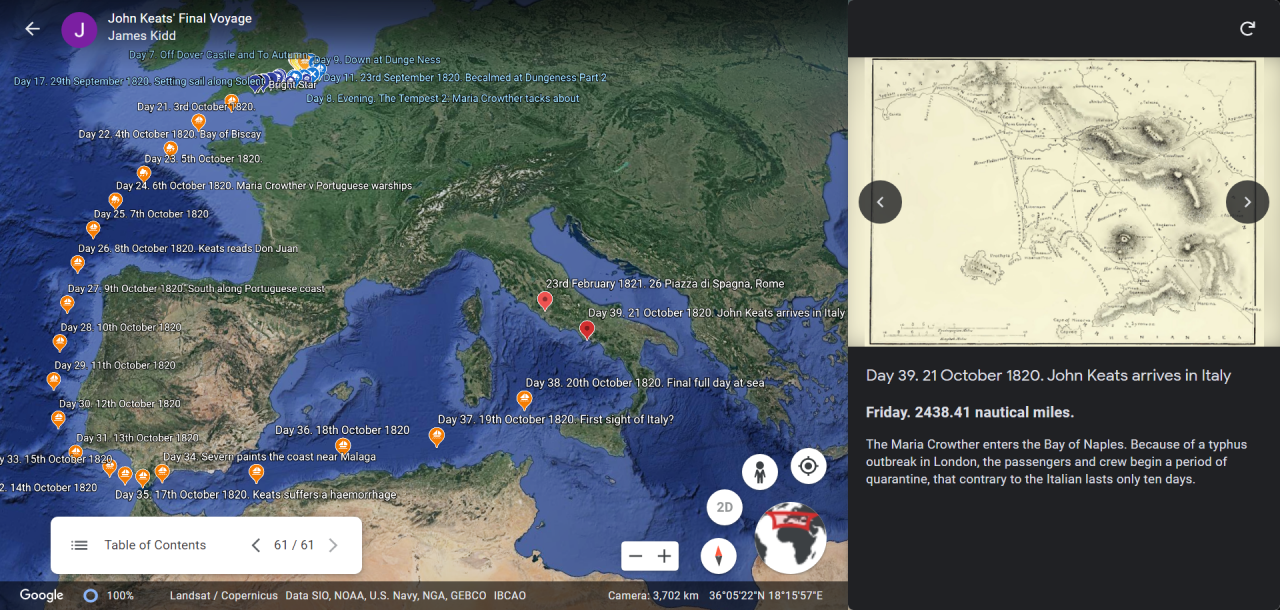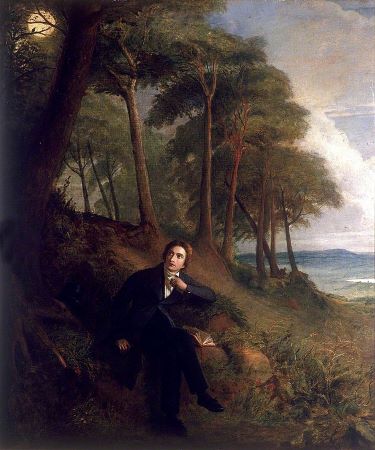1. Open John Keats’ Final Voyage – which retraces the journey made by the 24-year-old poet John Keats from England to Italy in the autumn of 1820.
Read the introductory section about Keats’ background, a brief history of his illness and his reasons for travelling to Italy. Imagine that you are in his place in the days leading up to departure. On the one hand, you are leaving everyone and everything that you know and love. On the other, you have been told by doctors and friends that the journey to Italy is your only hope of recovery.
Discuss the case for and against making the trip. Which would you choose?

2. Follow Keats and Severn’s sea voyage on John Keats’ Final Voyage. Storms, seasickness, homesickness, cramped and damp conditions, surrounded by strangers, one of whom is as desperately ill as you. What thoughts might keep your spirits up in these circumstances?
Poetry. Read John Keats’ Ode to a Nightingale. What does the poem say about Keats’ vision of suffering and adversity in the human condition? How might poetry – whether read or written – help in this respect?

3. On arrival in Naples, the Maria Crowther is placed in quarantine because of an outbreak of typhus in London. Think about your own experiences of lockdowns in 2020 and 2021.
Now, place yourself again in Keats’ shoes. What would you have felt on board the ship?
4. John Keats was not the only young passenger on the Maria Crowther who was dying of consumption. Also on board was 19-year-old Maria Crowther, who was sailing to Naples where he brother Charles lived and worked. Unlike Keats, she did not have a close friend with her - indeed she may well have been traveling alone.
Imagine the quarantine from Maria’s point of view. What might she have thought about John Keats?
5. Read Keats’ despairing letter to his friend Charles Brown – 1st November 1820 – on arrival from Naples: link via Google Earth http://bit.ly/2TFn49w.
Is Keats beyond help here? Does despair have a point of no return?
Poetry. Read Keats’ poem ‘In drear nighted December’. Consider the poem in the context of recalling joy from the midst of adversity.
Audio. Listen to the Keats-Shelley Podcast episode about the poem below.
6. Before Keats’ death on 23rd February 1821, he wrote his own epitaph: ‘Here lies on whose name was writ in water’.
What do you think he meant by this phrase? Consider how the line changes when placed in different contexts: Keats’ life in 1821; the other words writ on the gravestone; and finally his eventual fame as a poet.
Does ‘writ in water’ for example have more than one meaning?
Audio: Listen to the Keats-Shelley Podcast episode about the epitaph, recorded beside Keats’ grave.
Click here for the Keats-Shelley and Young Romantics Prize Resources.
Visit: 2021 Keats-Shelley Prize.
Visit: 2021 Young Romantics Prize.